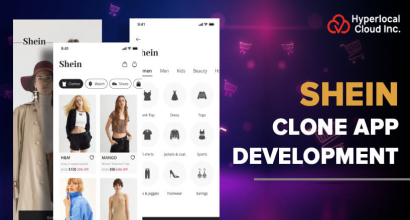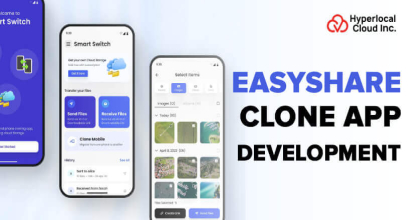| The global hotel management software market was valued at $3.5 billion in 2023 and is projected to reach $5.9 billion by 2032, growing at a CAGR of 5.9% from 2024 to 2032 |
In the modern era, technology is transforming every aspect of life, including how hotels manage their operations. There were days of manually handling bookings, guest data, and inventory. Hotel management software (HMS) has become essential for the smooth operation of hotels, offering a wide range of features that automate and streamline tasks, improve efficiency, and enhance the overall guest experience.
This blog is here to give you insights into hotel management software, its key features, benefits, revenue models, and development technology stack.
What is Hotel Management Software?
Hotel management software is a digital tool designed to manage the operations of a hotel or a group of hotels. It acts as a centralized platform for the hospitality industry, automating various functions such as guest reservations, check-in/check-out, billing, room management, housekeeping, reporting, and much more. By integrating these processes into one software platform, hotel management systems reduce the need for paper-based records, minimize human error, and enhance productivity.
This software typically has a user-friendly interface and can be cloud-based or on-premise, offering flexibility depending on the hotel's needs. Hotel management software can be used by all types of accommodations, from small boutique hotels to large hotel chains. It's not just for managing day-to-day operations but also helps with long-term growth and profitability.
Need the Best Hotel Management Software
Main Benefits of Hotel Management Software
Increased Efficiency
One of the significant benefits of using hotel management software is the improved efficiency of daily operations. Tasks like checking in guests, assigning rooms, and processing payments can be completed quickly and accurately. Automating tasks such as housekeeping management, guest requests, and billing minimizes the need for manual intervention, freeing up staff time for more critical tasks.
Enhanced Guest Experience
A sound hotel management system can offer a seamless guest experience by providing features like personalized services, real-time booking updates, and accessible communication with staff. For example, a guest can quickly check-in or request room service through an app or self-check-in with the system. This leads to a higher level of guest satisfaction and encourages repeat business.
Better Inventory & Resource Management
Managing hotel inventory, whether room availability, cleaning supplies, or restaurant stock, is accessible through hotel management software. Real-time updates allow management to keep track of everything, reducing waste and ensuring that no resources are over or underutilized. For example, if a guest books a room, the software immediately updates the inventory to reflect that room's availability.
Advanced Analytics & Reporting
With hotel management software, hotel owners & managers can access detailed reports on financial performance, guest trends, room occupancy & more. This data helps make more informed decisions such as adjusting pricing strategies, optimizing staff scheduling, & improving customer service.
Improved Security
Data security is crucial in the hospitality industry, as it involves guests' personal and financial information. Modern hotel management systems have encryption and robust security measures to protect all sensitive data. Additionally, access control features ensure that only authorized personnel can view or modify certain types of information.
Cost Reduction
Automating daily operations reduces the chances of human error and minimizes the risk of costly mistakes, such as double-booking or over-assigning rooms. By streamlining processes, hotels can reduce administrative costs, minimize wastage, and optimize resource usage, ultimately leading to cost savings.
Modules of Hotel Management Software
Hotel management software comes with a wide variety of features, each tailored to meet the specific needs of the hospitality industry. Here are some key modules:-
Reservation Management
This is the heart of any hotel management software. It allows users to manage bookings in real-time, check room availability, handle cancellations, and view upcoming reservations.
Front-desk Management
The front desk is the first point of contact for guests, and this module simplifies check-in/check-out procedures. It also helps manage room assignments, track guest preferences, and provide a seamless experience from arrival to departure.
Housekeeping Management
This module helps ensure that rooms are cleaned, inspected, and ready for the next guest. Housekeeping staff can use it to receive notifications for room cleaning, track tasks, and update the status of room cleanliness in real time.
Billing & Invoicing
The billing module helps process payments quickly and accurately. It handles invoicing, generates receipts, and tracks financial transactions, ensuring a hassle-free check-out experience for guests.
Point of Sale (POS)
Hotels often have restaurants, bars, and retail shops on-site, and the POS module allows for seamless transactions at these points. It helps integrate sales data with the hotel's central system for accurate reporting and tracking.
Channel Manager
A channel manager helps hotel owners manage multiple distribution channels, such as OTAs, GDS (Global Distribution Systems), and the hotel's website. The channel manager ensures that room availability and pricing are synchronized across all platforms, reducing the chances of overbooking.
Customer Relationship Management
The CRM module helps maintain guest profiles, track preferences, and communicate with guests. It also allows sending promotions, personalized offers, and follow-up messages, helping improve guest retention and loyalty.
Analytics & Reporting
As mentioned earlier, reporting is crucial in any business, and hotel management software is no exception. The software provides detailed reports on occupancy rates, revenue generation, and guest demographics. These insights help managers make informed decisions about pricing, staffing, and marketing strategies.
Staff Management
This feature helps manage the hotel's staff schedules, shifts, payroll, and performance. It allows for better coordination among different departments, ensuring smooth operations and preventing staff shortages or overstaffing.
Online Booking Engine
An integrated online booking engine lets guests book rooms directly through the hotel's website. This minimizes dependency on third-party websites and increases the chances of direct bookings, which are typically more profitable for hotels.
Upgrade to Smart Hotel Management – Discover Our Software Features Today
Understand the Revenue Model for Hotel Management Software
There are different ways that hotel management software companies monetize their products. The most common revenue model include:-
Subscription-based Model
Many hotel management software solutions use a Software-as-a-Service (Saas) model, where hotels pay a monthly or yearly subscription fee to access the software. This fee may vary based on the size of the hotel, the number of the users, or the features included in the package.
License-based Model
In this model, hotels purchase a one-time software license for perpetual use. However, they still may be required to pay for periodic updates, maintenance & support services.
Freemium Model
Some software providers offer a free version of their product with limited features, while premium features are available at an additional cost. This model is often used by smaller hotels or businesses that want to try out the software before committing.
Pay-per-use Model
A more flexible model would allow the hotel to pay only for the features it uses. For example, if the hotel needs to integrate with an external channel manager or POS system, it would pay an additional fee for those services.
Commission-based Model
Some hotel management software providers earn a commission from bookings made through their system, mainly if the software integrates with booking platforms.
Technology Stack for Hotel Management Software Development
The technology stack for hotel management software development is crucial for creating a seamless, efficient, and scalable solution.
- A modern hotel management system combines front-end and back-end technologies with third-party services.
- On the front end, HTML5, CSS3, JavaScript, and frameworks like React or Angular are used to create intuitive and responsive user interfaces.
- For the back-end, programming languages like Python, Java, or PHP, alongside frameworks like Django or Spring Boot, provide a robust foundation.
- Cloud services (AWS, Azure, Google Cloud) ensure scalable infrastructure, while databases like MySQL, PostgreSQL, or NoSQL options like MongoDB manage data.
- RESTful APIs or GraphQL are often used for system integrations, enabling communication between various hotel management modules. Payment gateways, analytics tools, and CRM integrations further enhance the system's capabilities.
Unlock Efficiency & Profit – Book a Demo of Our Hotel Management Software
Hyperlocal Cloud is 24*7 Available to Launch Your Hotel Management Software.
Hyperlocal Cloud stands at the forefront of innovative technology services. We offer customized hotel management software development that addresses the specific needs of the hospitality industry. With a focus on providing scalable, secure, & user-friendly solutions, Hyperlocal Cloud leverages cutting-edge technologies to deliver a seamless hotel management experience. Our company’s expertise spans cloud-based solutions, IoT integrations, AI-driven automation, & data analytics, ensuring that hotels can optimize their operations, improve customer experience, & streamline administrative tasks. Hyperlocal Cloud’s solutions cater to hotel property management & integrate essential features like booking systems, payment processing, inventory management, & real-time reporting. Our team of skilled developers ensures the deployment of efficient, adaptable, & future-proof software that drives business growth for hoteliers.
The End
Hotel Management Software is a necessity. It significantly enhances operational efficiency, improves guest satisfaction, and optimizes resource management, allowing hotels to remain competitive in an increasingly digital world. With features ranging from seamless reservation management to real-time reporting and integrated guest services, modern hotel management software platforms offer hoteliers the tools they need to automate daily operations, minimize costs, and provide exceptional guest experiences. As the hospitality industry continues to embrace digital transformation, partnering with a tech company like Hyperlocal Cloud offers the expertise to build a customized hotel management software that fits the specific needs of any hotel, regardless of its size or complexity.
At Hyperlocal Cloud, we are committed to providing cutting-edge hotel management software development solutions that optimize your operations, enhance guest experiences, and drive growth. Whether you're looking for cloud-based solutions, AI-driven automation, or seamless integrations, our team of experts is ready to help you implement the perfect system for your business.



